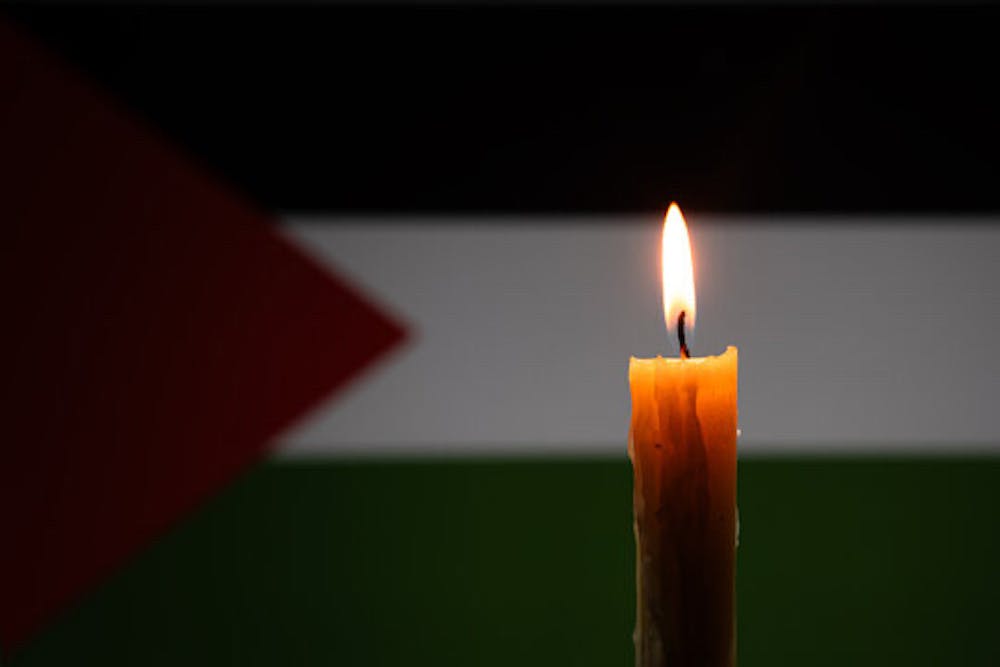Following its initial open discussion, the Palestinian Student Association hosted its second conversation to discuss the ongoing situation in Palestine on Dec. 7.
Ezz Siyam, a senior diplomacy major and the president of PSA, said the organization “aims to create knowledge of the Palestinian struggle and foster understanding and solidarity with other communities.”
“During these times, we understand that people on campus need a safe space to express their feelings and thoughts without being judged, no matter what their views are,” Siyam said.
Siyam said as a diplomacy major, he believes in the “power of open dialogue.”
“The values of all participants, no matter what their views may be during these unsettling times, aren’t as far apart as I initially thought,” Siyam said. “With more open dialogue between all participants, there’s potential for common ground.”
Siyam said compared to the first open discussion, which PSA held on Oct. 12, participants were better “able to articulate their own opinions.”
“As a result, people naturally became more aware of the situation and felt more confident in their abilities to speak up,” Siyam said.
He said there was a large number of attendees, including non-SHU guests.
Ayaz Rabbani, a freshman psychology major, was an attendee at the open discussion. He said the event “fosters valuable discussion that brings students and faculty together, allowing both parties to share experiences and develop deeper thoughts on the reality of Palestine.”
“PSA initially formed as a way to celebrate rich Palestinian culture, but current events have led them to adapt as an activist group, hosting events that help students contact their representatives,” Rabbani said.
The PSA treasurer and co-PR chair, who wants to remain anonymous, said the event served as an outlet for Palestinian students who “feel like they’re not doing enough.”
“Some people had to even step out of the classroom because they were saying things that were really emotional, but at the same time, they felt like it was a chance for them to express themselves,” she said.
As an organization, PSA is “all about understanding each other,” the treasurer and co-PR chair said.
“We felt that the organization was needed because not a lot of people understand the culture of Palestinians and so we kind of value just understanding other people and their perspectives,” she said. “So having the event, we made sure that everyone was free to say whatever they want as long as it was respectful.”
Rabbani said the event “creates a safe space for students to voice their thoughts on the matter and vent their frustration at the disappointing media response.”
“It allows students to share experiences without the fear of the unjust retribution we’ve seen at other schools, which have suspended various activist groups and even expelled students for peaceful remarks,” Rabbani said.
This comes as Students for Justice in Palestine was recently suspended at Rutgers University, according to a press release from Dec 12.
Rabbani said “this humanization of Palestine is important at a time when the media seems adamant at denying children their humanity and right to life.”
“The attack on Oct. 7 was not an unprovoked attack against a peaceful neighbor,” Rabbani said. “Israel has held Gaza under a blockade for over 15 years, restricting their access to basic necessities and creating an unjust lack of resources.”
Rabbani said given the current political circumstances, “true peace is not really possible.”
“The philosophy of Israel must change as we know it,” Rabbani said.
Peyton Hruska can be reached at peyton.hruska@student.shu.edu





